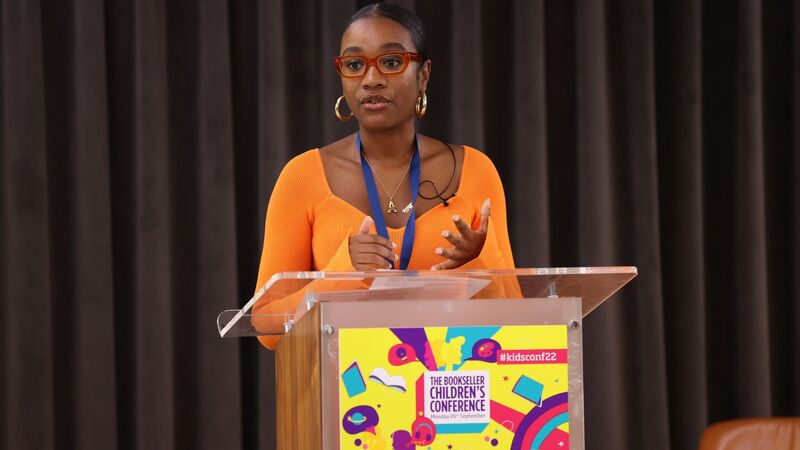You are viewing your 1 free article this month. Login to read more articles.
Alanna Books' Lulu series reaches $1m turnover in US
Sales of the Lulu series, created by publisher Anna McQuinn 10 years ago in an attempt to remedy the lack of diverse children’s books, have hit the $1m (£700,000) turnover mark in the US.
The books, which McQuinn sells through her own publishing company Alanna Books in the UK, are sold by Boston-based Charlesbridge in the US, where sales have reached 275,000 units for turnover of more then $1m in 10 years. In 2015, US sales - where Lulu is called Lola - were $163,285 from 43,644 copies sold.
In the UK the books struggle to achieve such big numbers, McQuinn said, but once sales from Brazil, South Korea, Denmark and the Netherlands are totted up, the numbers of units sold reaches 330,000 since publishing the first title, Lulu Loves the Library.
The series does not register on Nielsen BookScan but McQuinn sells about 85% of stock directly to libraries. She has calculated that given an average of 10 borrows per book per year, around 6m children have read a Lulu story. “I’m especially proud that this means lots of little black girls have seen someone like themselves in a book,” McQuinn said.
McQuinn created the series more than 10 years ago with a book about what happens when a small girl Lulu visits the library with her mum, and hired Rosalind Beardshaw to do the illustrations. She took examples to the Bologna Book Fair in 2005, where she sold the US, Dutch and Danish rights, but failed to secure a UK deal.
McQuinn initially had no intention of launching her own publishing company but a self-published print run of 3,000 copies sold out, she decided to go it alone and launched Alanna Books.
The series now comprises three other titles – Lulu Loves Stories, Lulu Loves Flowers and Lulu Reads to Zeki – and a fifth, Lulu Gets a Cat, will be out later in the year. McQuinn has also launched a second series making Zeki, Lulu’s little brother, the main character.
McQuinn thinks she failed to get a UK deal for the books 10 years ago because the target age group - toddlers - is hard to publish for.
“There’s an expectation that they’re more sophisticated than they are at that age,” she said. “People might think the stories in these books are a bit slight but the target age group really likes them. They want something that is between a board book and a more complicated picture book.”
She also thinks the US was at the time “more ahead” than the UK, where publishers only wanted “issue books”.
“What’s great about these books is that Lulu doesn’t have to struggle to overcome anything,” she added. “You don’t want to be reading about overcoming racism when you’re three years old.”
















